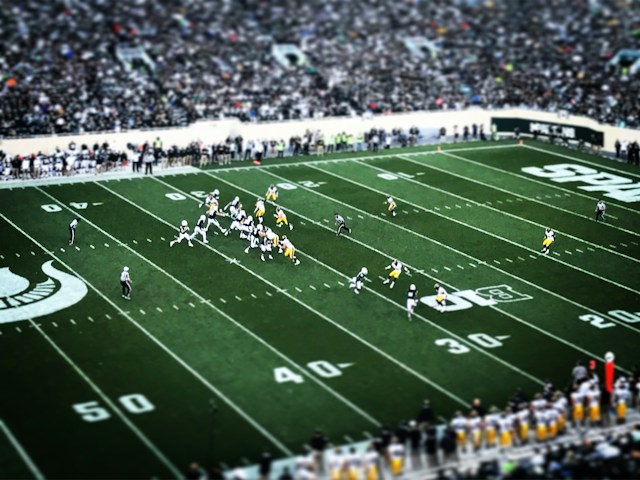Robbie Burns famously wrote, “There is no such uncertainty, as a sure thing.” Boy did those words come home to roost in Buffalo on Sunday night. With moments to go in the Bill’s divisional championship football game against the Kansas City Chiefs, a kicker by the name of Tyler Bass prepared for glory. With a single kick, he could tie the game, giving the Bills a fighting chance of victory and a berth in the semi-finals of the Superbowl. He had to clear 44 feet, a challenging but makeable distance. To increase his odds, the wind was at his back.
It was a sure thing. Until it wasn’t.
Within milliseconds of the ball leaving his toe, it was painfully apparent that it was going to go wide and to the right. It did. As it sailed past the uprights, you could hear the sound of hearts breaking and spirits deflating as the Buffalo fans started to mourn the premature death of a Superbowl dream, yet again.
I became a fan of the Buffalo Bills back in the 1990s. My roommate and I would watch them on a Sunday afternoon instead of doing homework. Holed up in our tiny apartment in Ottawa, glued to our tiny TV, we would convince ourselves that “this is the year.” The Bills were good back then, just as they are now. They were championship contenders, making it to the Superbowl four years in a row, only to lose every time, often as the result of a missed kick. If you say the words “wide, right” to a Bills fan, you can visibly see them wince.
As a Bills fan and a Leafs fan, I am well acquainted with disappointment in a way that doesn’t exist for the fans of other teams. Other teams lose, but they haven’t made a cottage industry of losing like these two teams. If you look up the word “underachieving” in the dictionary, you will likely find a blue maple leaf or a blue buffalo. And yet, what is remarkable to me is that both teams have an unbelievably loyal fanbase. Almost delusionally loyal. We keep showing up, paying up, and cheering up, even as they keep letting us down, year after year after year.
As I sat in the postgame dark on Sunday, chewing over what I had just witnessed, I started thinking about the quality of loyalty. I’ve been a good fan, a faithful fan, a long-suffering fan of both the Bills and the Leafs for years, even decades. All I have received for my loyalty is a yearly pat on the back accompanied by a pitying, “There’s always next year.” Maybe, I thought, it’s finally time to throw in the towel. Maybe it’s time to give my nervous system a break. Maybe I need to wash my hands of them and walk away. I hear other cities like Boston or Las Vegas, or Denver, or Dallas have an opening for a wayward sports fan just looking to join a parade, hoist a cup, or dance in the streets!
But, you know, and I know, I’m not going anywhere. Why? Because I can’t quite seem to give up on my teams.
Loyalty is an interesting quality. I think, for the most part, we admire it. We have respect for those who aren’t quick to give up on something or someone that means something to them. Instead of cashing in their loyalty to grasp hold of the next shiny thing that comes along, they choose to stand by the things and the people in which they have invested a good part of themselves. In a buy-and-sell world, it’s easy to proffer our allegiance or affection to the highest bidder if it serves our purpose. We have all heard stories of the employee who sells out a colleague so she or he can ascend further up the ladder of success. We all know of the spouse, partner, or friend who dissolves a relationship because someone more exciting comes along. Disloyalty hurts. And the closer the person, the more it hurts. So, when someone refuses to be disloyal and refuses to abandon something or someone for an alternative that may seem “better,” we admire them as we should. Loyal people are admirable people.
But there are exceptions to that rule.
Disloyalty can hurt us. But sometimes loyalty can, too. Sometimes, we can hurt ourselves by staying loyal to that which is harming us, such as the spouse who stays in an unsafe relationship or the worker who stays silent when faced with a bullying employer. No one should have to stay in a situation out of a sense of loyalty when he or she feels unsafe or undervalued. Sometimes, the person we most need to be loyal to is ourselves, which means that there will be times when we need to walk away from situations or people who are doing us harm. In some cases, to stay put, or to stay silent, is the greater act of disloyalty.
Loyalty is complicated.
Nathan Thomas wrote, “the secret of a good life is to have the right loyalties and hold them in the right scale of values.”
Next Fall, I’ll be cheering for the Bills, and come to the NHL playoffs, I’ll be cheering for the Leafs (if they make it). Some may call me crazy. Some will call me a glutton for punishment. Some will shrug their shoulders and shake their heads. But I’ll stick it out. Maybe one day, I will hoist a cup, dance in the street, and join a parade. But even if I don’t, maybe I’ll feel the inner joy of knowing that I stayed loyal. And that, too, will bring its own reward.




